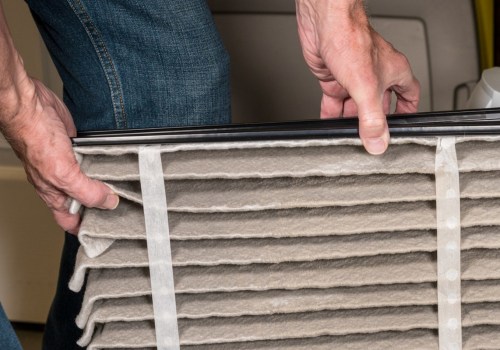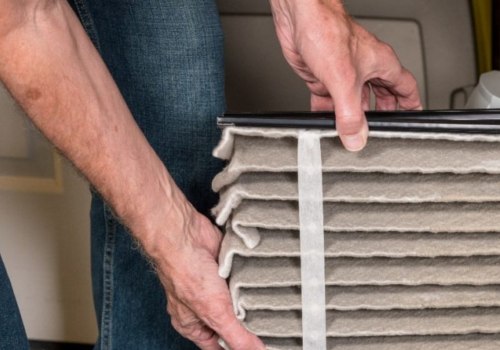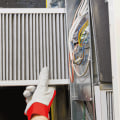If your home is filling up with dust soon after cleaning, the furnace filter may be clogged and no longer effectively removing dust from the air. You may also notice that your furnace is working harder than usual. Generally, it's recommended to replace a basic fiberglass furnace filter every one to two months and paper furnace filters every four months or a year. However, there are some factors that can shorten or extend the time between filter replacement intervals.
In most cases, you should replace the filter at least every three months, even in summer. If you can't remember to do it, a good rule of thumb is to change your furnace filter every time the seasons change. For 3- and 4-inch filters, plan a replacement approximately every six to nine months. If you have larger 5- or 6-inch filters, you'll need to change them every nine to 12 months. Not only do furnace filters keep the HVAC system free of contaminants, but they also help clean the indoor air you breathe.
Generally speaking, HVAC furnace filters don't need to be changed as frequently during the winter months compared to the summer months. But there are some special signs and considerations that will let you know when it's time to change your furnace filter. Electrostatic furnace filters last the longest, several years if cleaned every four or six weeks. Even though almost everyone knows about furnace filters, they are still one of the most neglected HVAC maintenance tasks. The filter is placed in a shared air handler where it cleans the air before diverting it to the conditioning unit or furnace.
Filters play a vital role in the overall operation of your furnace and can have a notable impact on the air quality of your home. Their specific situation is unique, but most air filtration experts agree that there is a general lifespan for furnace filters. If you don't change your filter regularly, you may end up with a furnace that doesn't work as efficiently and that is likely to have a shorter lifespan. To help solve this conundrum, here is some information on how often you should change your furnace filter. Even if you live in a temperate climate with excellent air quality, there is another important reason to change your furnace filter as recommended. When the filter is clogged, it is more difficult for the furnace to draw in air, causing it to work harder and consume more energy.
Without a filter, the furnace would stop working quite quickly because the equipment would be too dirty to work properly. Considering the factors that influence the air quality inside your home is a good measure of how often boiler filters need to be replaced. Since most of the air in your home circulates through the HVAC system, furnace filters are your first line of defense against airborne dust and allergens.










